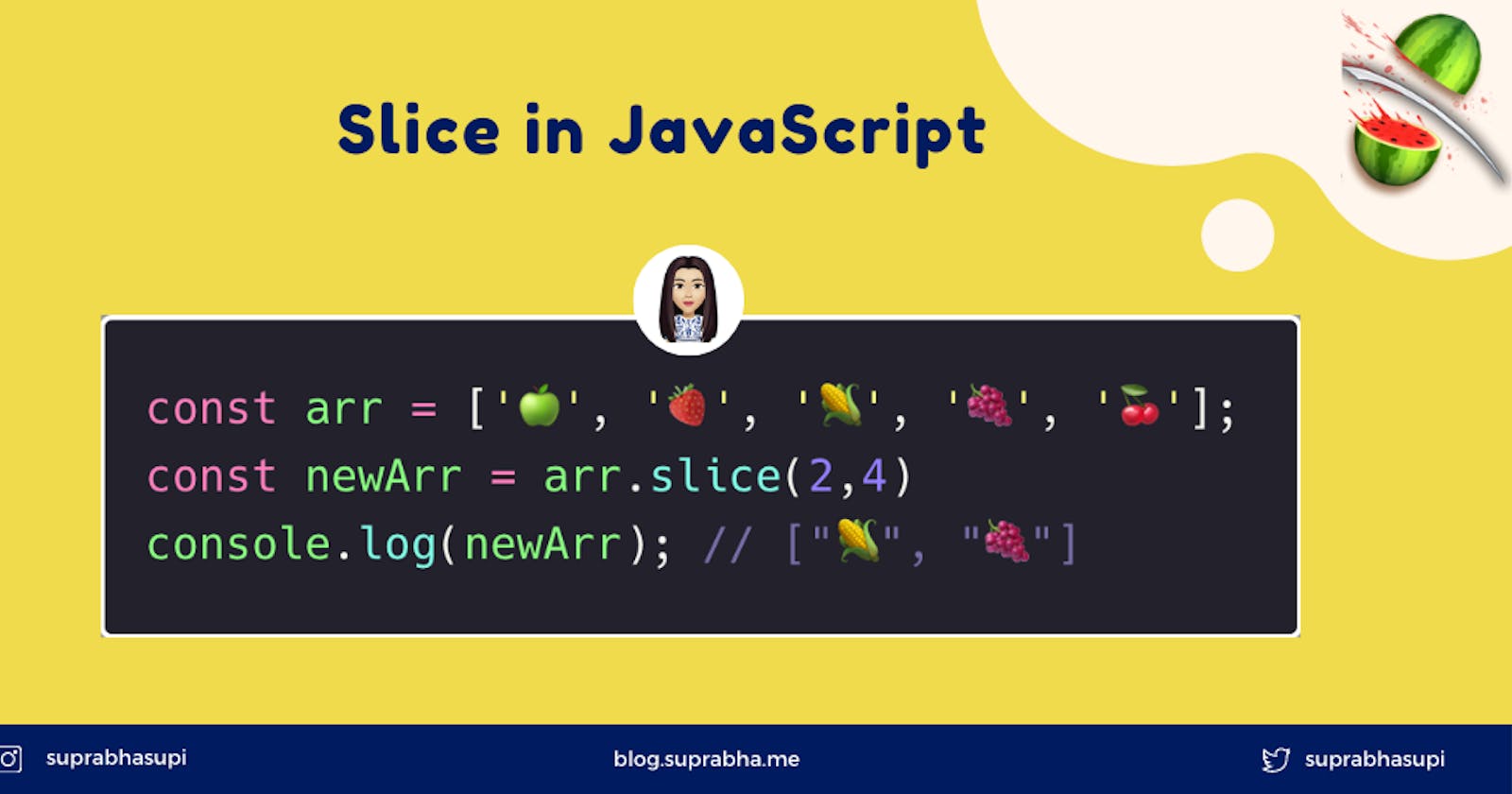The slice method returns a new array with a copied slice from the original array.
Syntax:
arr.slice([start[, end]])
start refers Zero-based index. If start is undefined, slice starts from the index 0.
In end, slice extracts up but not including end.
It's too theoretically right 🤣 Let's checkout few examples 👇
Using two arguments ✅
const arr = ['🍏', '🍓', '🌽', '🍇', '🍒'];
const newArr = arr.slice(2, 4);
console.log(newArr); // ["🌽", "🍇"]
Without arguments, you get a copy of the full array ✅
const arr = ['🍏', '🍓', '🌽', '🍇', '🍒'];
const newArr = arr.slice();
console.log(newArr); // ["🍏", "🍓", "🌽", "🍇", "🍒"]
Using one argument, you get a copy from the specified index to the end of the array ✅
const arr = ['🍏', '🍓', '🌽', '🍇', '🍒'];
const newArr = arr.slice(3);
console.log(newArr); // ["🍇", "🍒"]
Index can also be negative, in which case the starting index is calculated from the end ✅
const arr = ['🍏', '🍓', '🌽', '🍇', '🍒'];
const newArr = arr.slice(2, -2);
console.log(newArr); // ["🌽"]
If start is greater than the index range of the sequence, an empty array is returned ✅
const arr = ['🍏', '🍓', '🌽', '🍇', '🍒'];
const newArr = arr.slice(6);
console.log(newArr); // []
If end is greater than the length of the sequence, slice extracts through to the end of the sequence ✅
const arr = ['🍏', '🍓', '🌽', '🍇', '🍒'];
const newArr = arr.slice(1,9);
console.log(newArr); // ["🍓", "🌽", "🍇", "🍒"]
slice() method can also be used for strings ✅
const arr = 'suprabha';
const newArr = arr.slice(0, 3);
console.log(newArr); // "sup"
Note: 🧨
Slice is immutable and Splice mutates the array.
To Understand more about Splice, Checkout this Article .
Reference 🧐
Thanks for reading the article ❤️
| 📚 Ebooks |

